So recently human rights charity Amnesty International caused a massive controversy by proposing that the organization support worldwide decriminalization of sex work. They’ll be voting on the proposal at their annual conference in Dublin on Monday. Celebrities including Lena Dunham, Meryl Streep, Emma Thompson and Kate Winslet all signed a petition asking Amnesty to reconsider. But if you actually talk to the people affected, the sex workers themselves, they think Amnesty was actually on the right track – and they should stick to their guns. 1,100 sex workers and representative organizations including the International Gay and Lesbian Human Rights Commission (IGLHRC), International Committee on the Rights of Sex Workers in Europe (ICRSE), Sex Workers’ Rights Advocacy Network in Central and Eastern Europe and Central Asia (SWAN), Human Rights Watch, the Global Alliance Against Traffic in Women (GAATW) and anti-trafficking organisation La Strada International have all signed a letter to Amnesty asking them to stand their ground and stick with the decriminalisation campaign . Here are a few reasons why actually we should maybe listen to the sex workers on this…
1. Criminalizing sex work doesn’t stop it happening, it just makes workers unsafe
Sex work really is the world’s oldest profession, and it’s been illegal for a lot of that time. (Note that this hasn’t actually stopped it.) When sex work is criminalised – directly, or indirectly through laws and practices targeting sex workers, clients, or third parties – sex workers will be at risk of police violence, arrests, rape, blackmail and deportations, and unable to report abuse or violence they suffer at the hands of clients, law enforcement agencies, third parties or anyone else. If Amnesty International support decriminalisation, that’ll help sex workers access justice and hold accountable those who abuse and attack them.
2. Things are even worse for migrant sex workers

Amnesty’s policy explicitly focused on the most marginalised group of sex workers, migrant sex workers. In many European countries, up to 75 per cent of sex workers are migrants. They often lack documentation and are easily subject to violence and exploitation – their human rights are often much more at risk than those of citizens. The ‘Nordic’ or ‘Swedish model’, which criminalizes clients instead of sex workers, puts migrant sex workers under constant threat of police repression, arrest or deportation, often denying them access to justice. This is particularly important because right now we have around 60 million people forcibly displaced worldwide, the most since World War 2. With limited access to decent work or welfare, a lot of them end up in sex work. Looking out for the human rights of just such marginalised people is Amnesty International’s raison d’etre.
3. In much of the U.S. people are arrested for ‘manifesting prostitution’

You don’t have to be selling sex or anything close. You can be arrested simply for being in the wrong place, wrong time, or wrong clothes – and these arrests are hugely racially biased. (In Brooklyn in 2011, for example, 95% of people arrested on these charges were people of colour.) And we’re not talking small numbers, either – 5700 people in 2011, mostly women. And these charges stick around for a while. The criminalisation of sex work disproportionately affects marginalised populations, even if they’re not actually anything to do with sex work.
4. If you’re arrested three times, you’ll probably go to jail

And no matter how much we all love OITNB, jail is not much fun. (Just look at how Alex reacted when she found herself back there.) It’s violent, it’s nasty, and people sometimes die. In 2009, a sex worker called Marsha Powell died in jail in Arizona after guards locked her in a cage outside in 107* heat and ignored her pleas for water. Her body was covered in burns. Nobody wants to go to prison, but for many vulnerable and marginalised people sex work is one of the only viable means of survival, and its illegality doesn’t stop them from practising it.
5. There’s no evidence the ‘Nordic model’ reduces sex work or trafficking

Lena Dunham and the other signatories of the letter asking Amnesty to reconsider a decriminalization policy suggested adhering to the ‘Nordic’ or ‘Swedish model’, which criminalizes clients. However, not only do most states instituting this policy actually fail to remove legislation criminalizing sex workers, it also does nothing to reduce the amount of sex work taking place, or the amount of trafficking either. A study by the Swedish Board of Health and Welfare could conclude only that ‘it is difficult to discern any clear trend or development’ after the implementation of the policy. And actually, in Stockholm, the number of premises increased threefold between 2009 and 2012. It also makes sex workers’ lives more difficult and contributes to stigmatization and marginalization – completely intentionally. The head of Sweden’s anti-trafficking unit told a journalist last year, “of course the law has negative consequences for women in prostitution, but that’s also some of the effect that we want to achieve.”
6. And the ‘Nordic model’ does a lot of harm

Whilst the ‘Nordic Model’ doesn’t stop sex work happening, it does make sex work considerably less safe. It pushes sex workers underground, puts them at much greater risk of violence, prevents them from working together for safety or from negotiating their own working conditions. Activist and artist Molly Crabapple points out that ‘It leads to stigma, impoverishment, sex workers being evicted from their homes, and sex workers charged with “pimping” when they choose to work together for security. Most importantly, it involves often corrupt, violent police in the lives of women they have a history of enacting violence upon.’
7. Not all sex workers are women

Whilst the majority of sex workers are cis women, there are also lots of men and trans people in the sex industry, and they face some of the most serious violence and human rights violations. Trans sex workers in particular face horrendous stigma. Violence and murders of trans sex workers in particular, often by the hands of or with the complicity of the authorities and the police, are revoltingly high. Between 2008 and 2014, 1,612 reported killings of gender-variant/trans people in 62 countries have been documented, and a minimum of 65 per cent were sex workers. Any form of criminalisation, including the ‘Nordic model’, significantly increases sex workers’ vulnerability to violence, including from police.
8. Decriminalization (what most sex workers want) and legalisation are not the same.

They may sound it, but actually there are some crucial differences. Decriminalizing sex work means ending the criminalization of anybody involved - workers, third parties, and clients. It is completely different to legalisation, which often involves punitive and discriminatory regulation of sex work. The Sex Workers’ Open University says: ‘Third parties and clients must be decriminalized along with sex workers, because sex workers suffer when any aspect of in the industry is criminalized.’ If punishing clients is more important than keeping sex workers safe, I think the world needs to revaluate its priorities (and possibly die in a fire.)
9. Sex work does not equal human trafficking

Some people are trafficked into sex work – but many more people are trafficked into domestic servitude, agriculture or construction. Trafficking is a complex issue, but it’s a much bigger issue than simply sex work and criminalizing clients does precisely nothing to stop it. Suggesting that the ‘Nordic model’ or any other partial criminalization will prevent trafficking has been rejected by many anti-trafficking organizations.Criminalizing sex work does not solve any of the problems trafficked people or the organizations that represent and try to help them experience, nor does it stop human trafficking. These approaches don’t protect sex workers (rather the opposite, as we’ve seen), halt human rights abuses (which is what Amnesty’s about, after all), or dismantle criminal networks.
10) Decriminalization will actually make the world a better place for sex workers

If sex work is decriminalized, sex workers will get access to justice. If their living is not criminalized, they will be much more able to report rape and violence and expect some form of legal redress. They will also be much less at risk of (endemic) violence from law enforcement if they are no longer categorized as criminals. They will be able to work in collectives, negotiate to improve conditions, and access forms of social support they are barred from by criminalization. Obviously, we still have a lot of work to do before people are no longer forced into sex work by poverty, lack of social support or migrant status. But decriminalization – and Amnesty’s support of it – would be a damn good start.
I am very grateful to Sex Worker Open University, Molly Crabapple and the International Committee on the Rights of Sex Workers In Europe, whose research and resources I have shamelessly plundered. All pictures except OITNB screenshot copywright SWOU/Toni Mac, used with permission.
Have you liked us on Facebook?
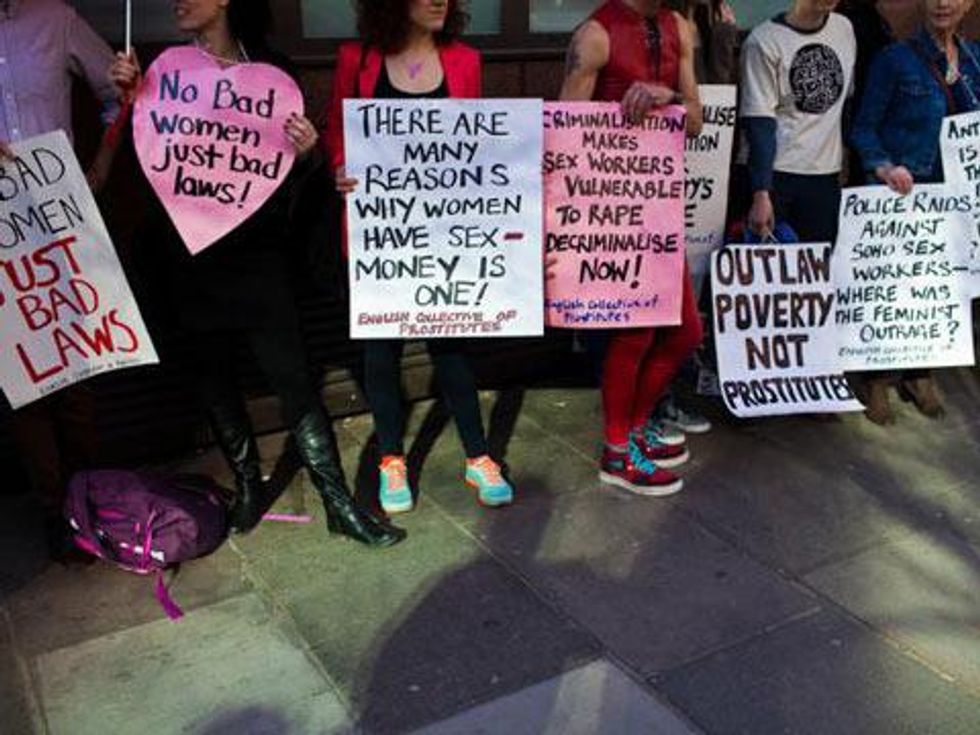








































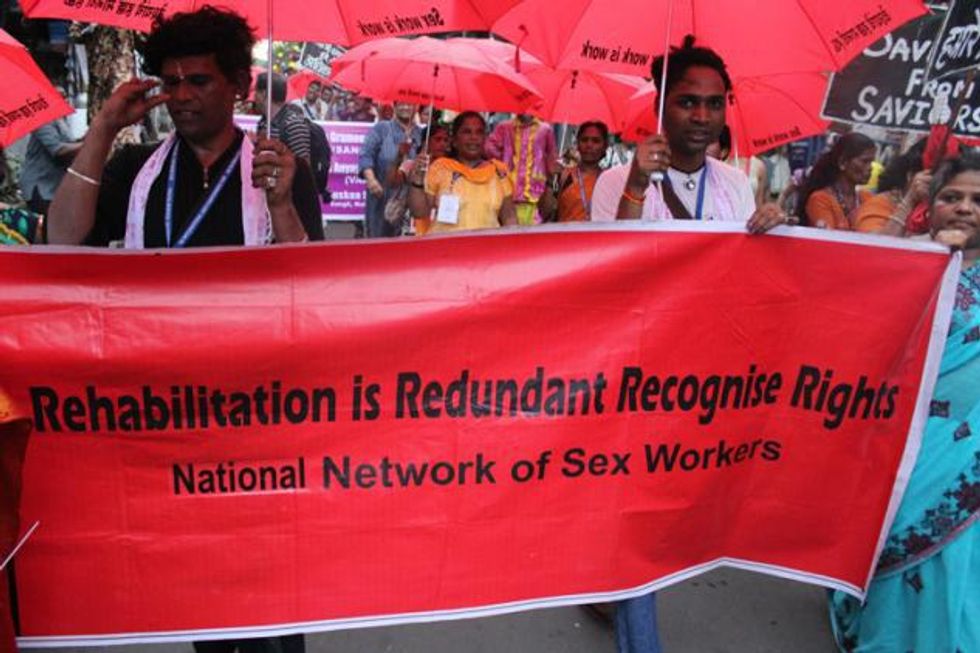
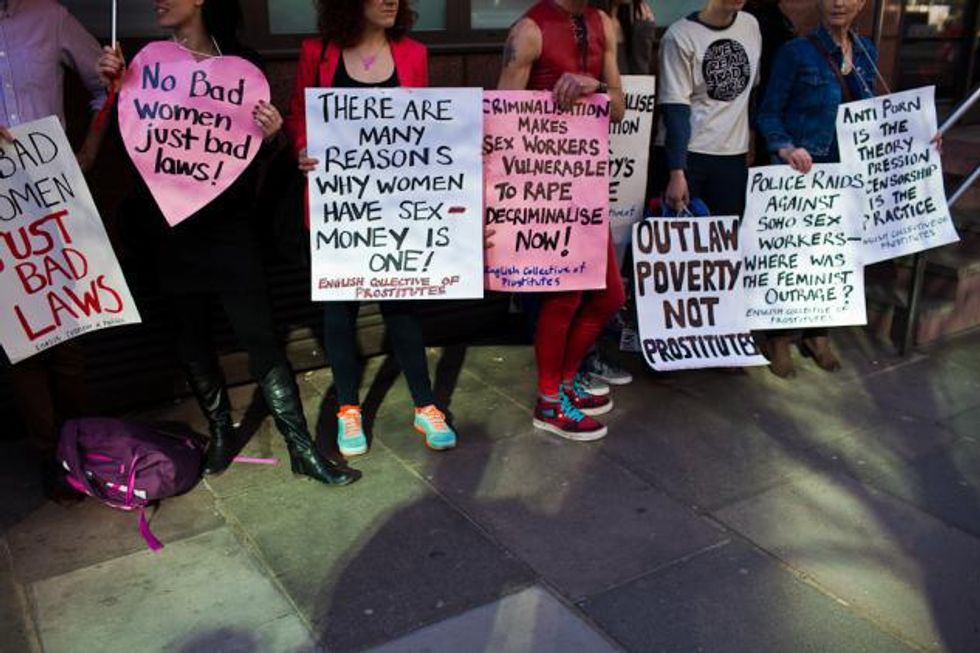
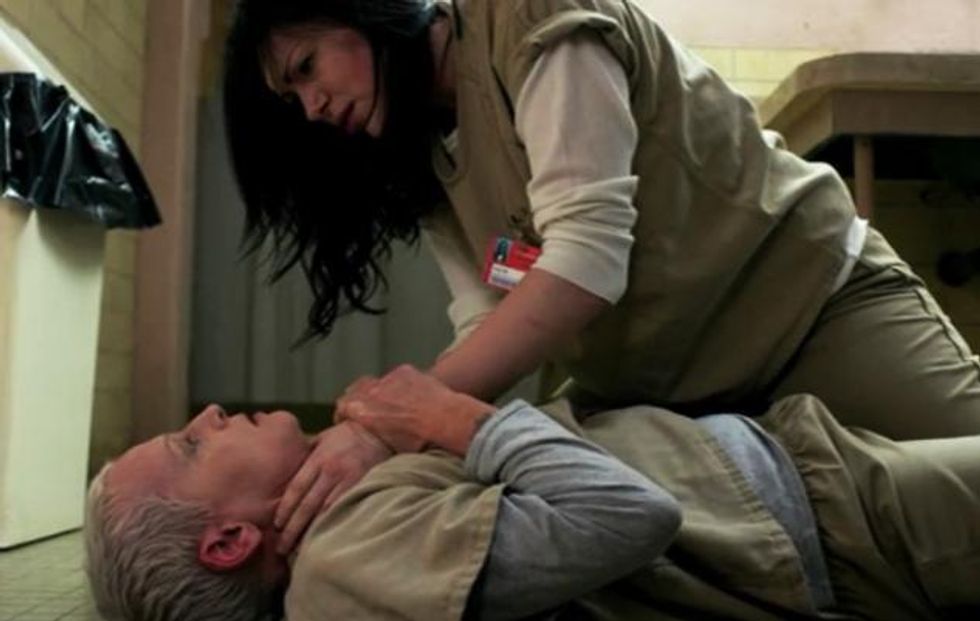
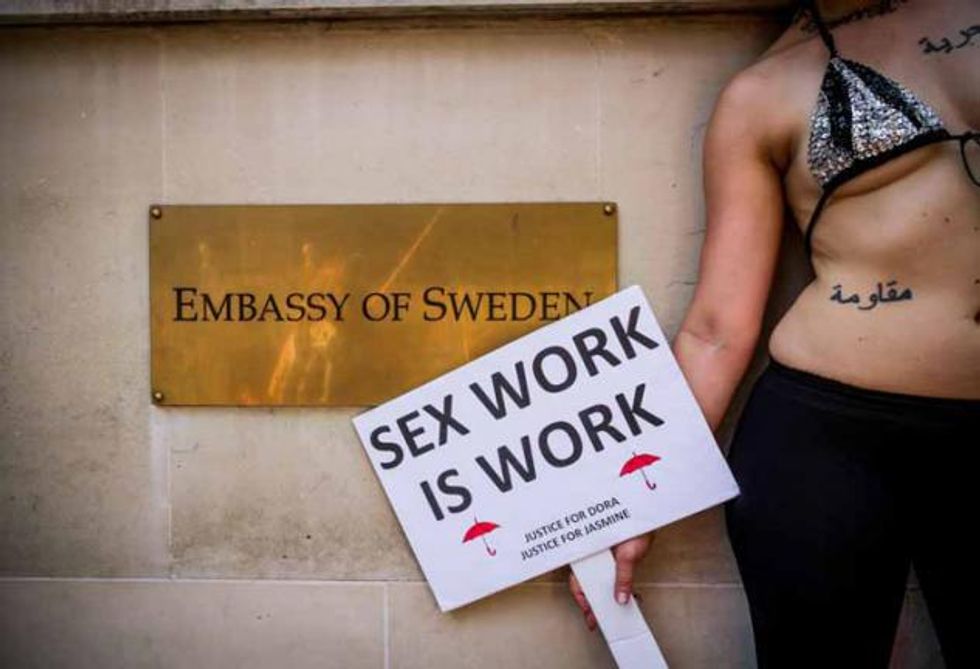
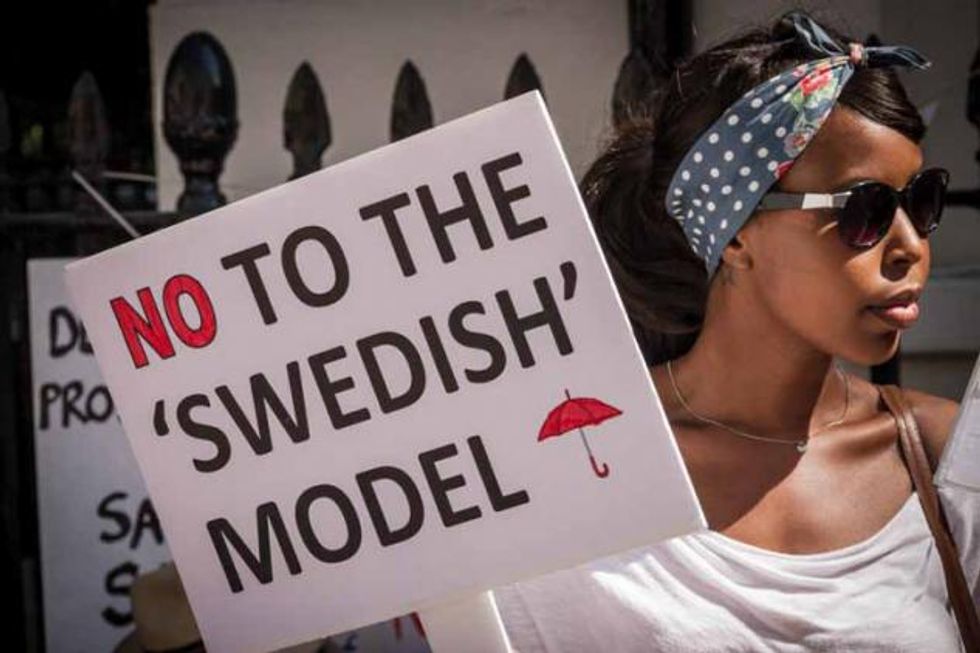
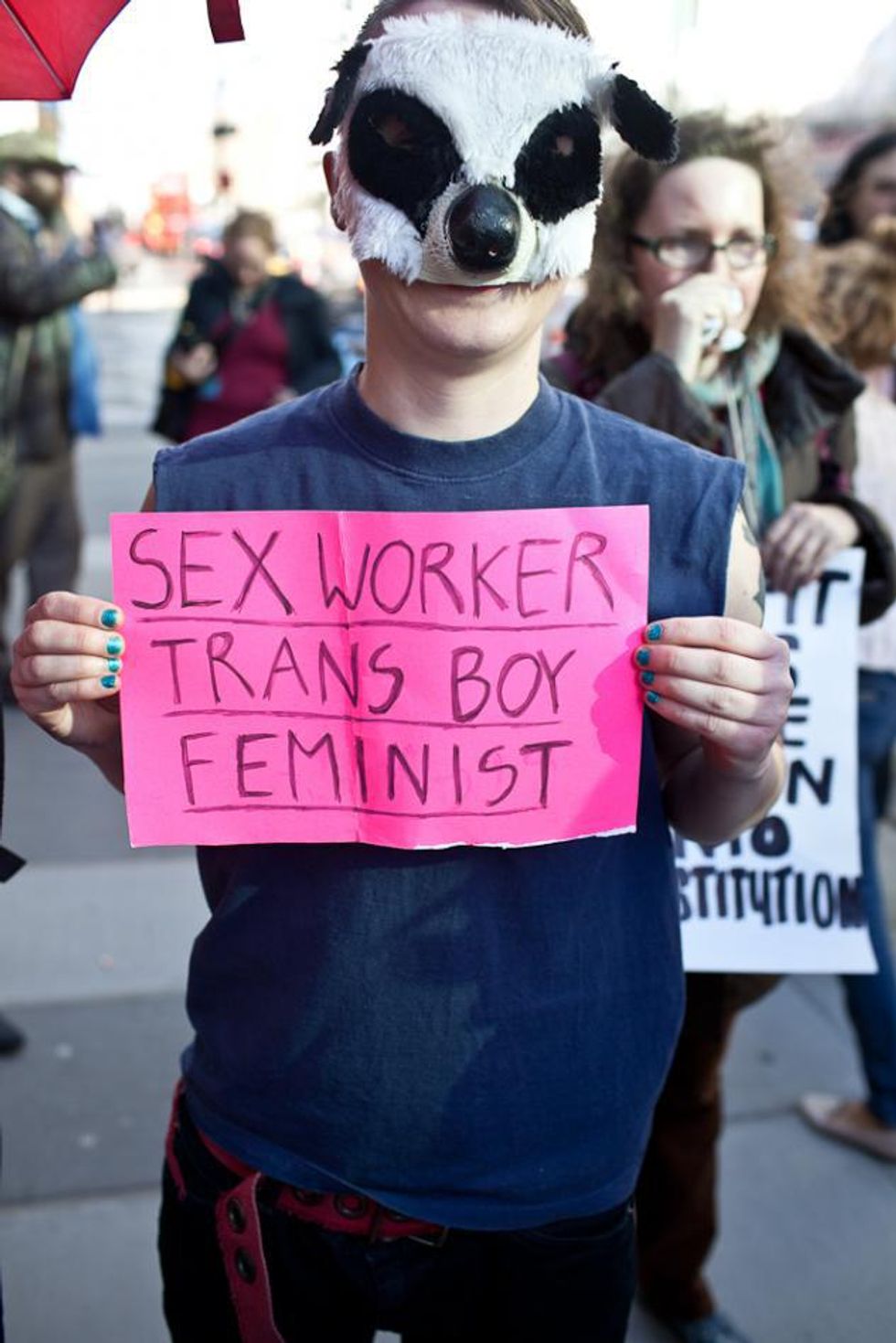
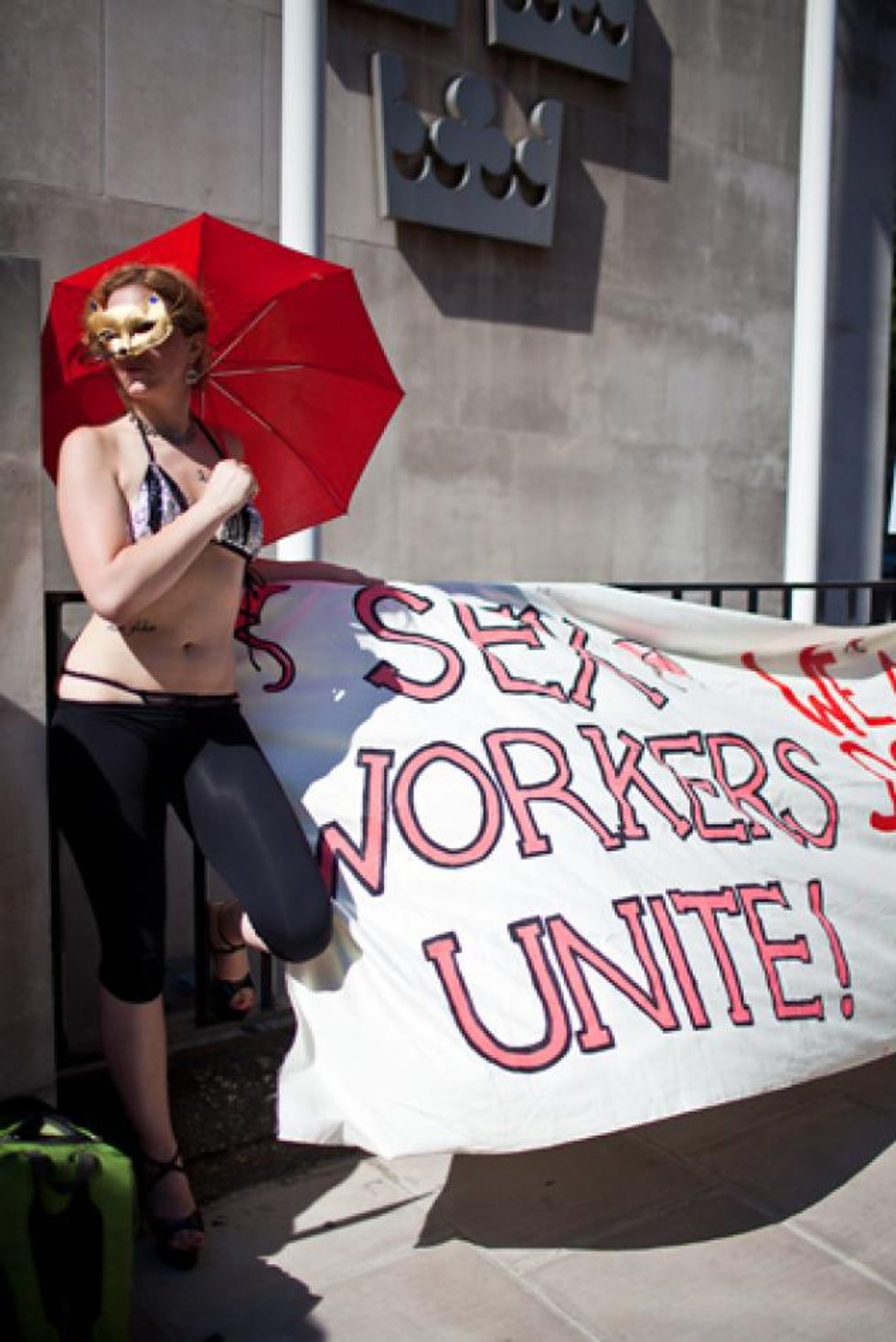

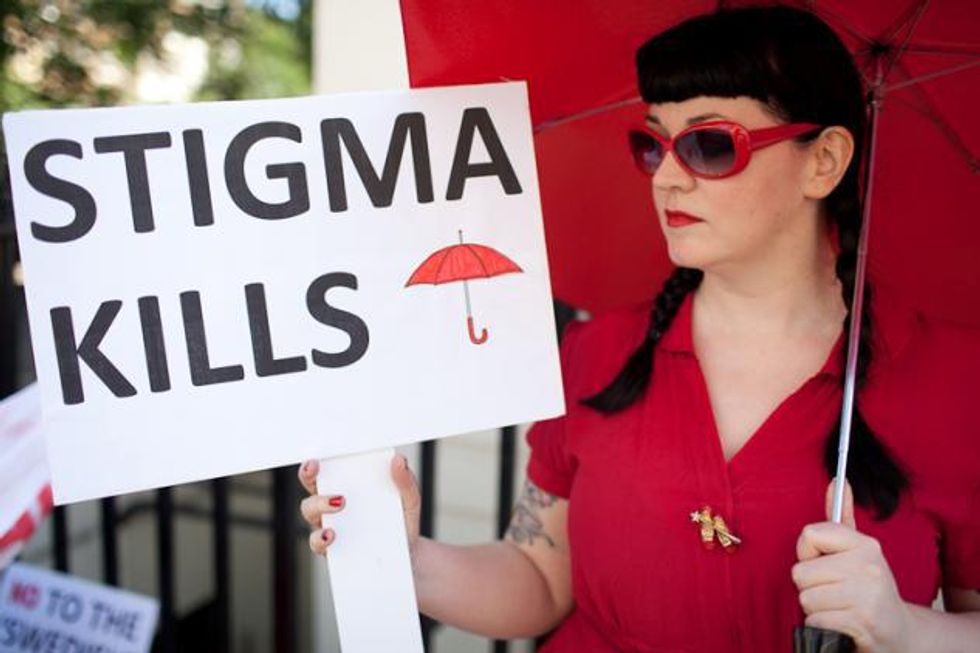






















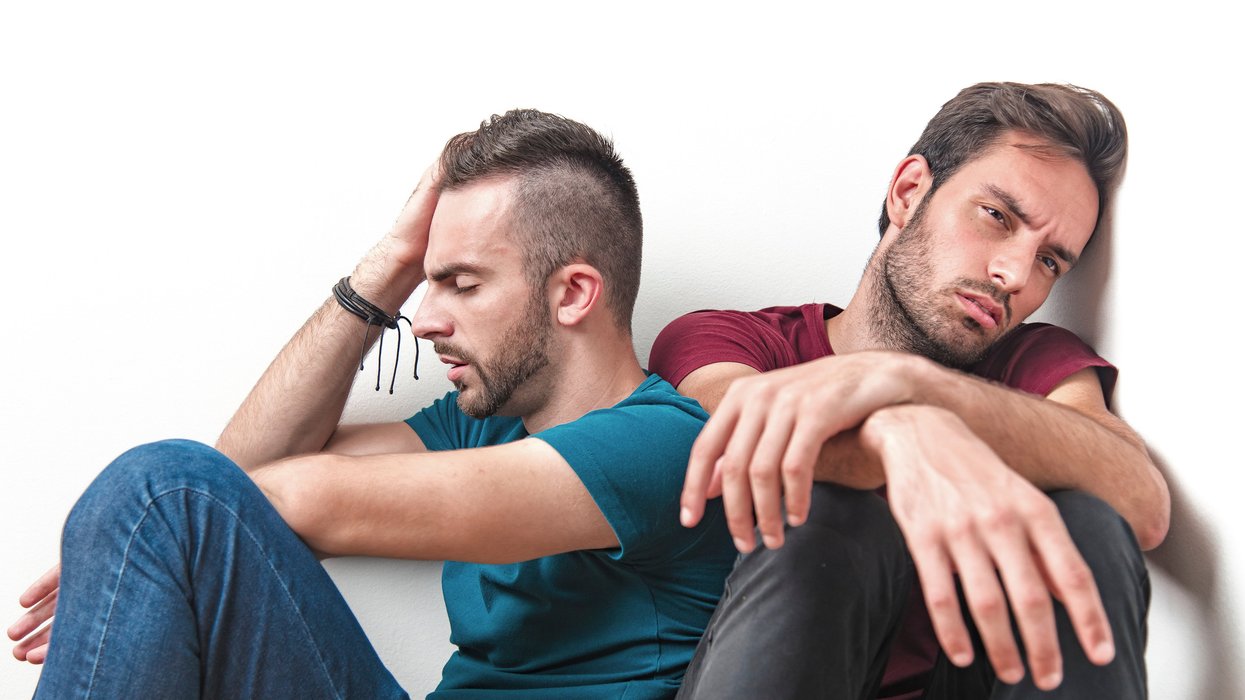


























































Justin Bieber, Jaden Smith, & Noah Beck kissed their bros & Twitter melted down, it's 2024 y'all